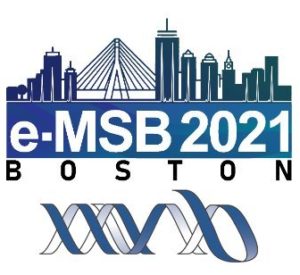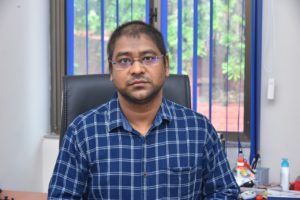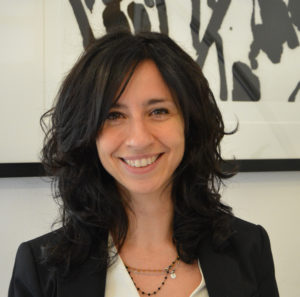Join us virtually from anywhere in the world and learn about solutions to the most pressing challenges of today and tomorrow.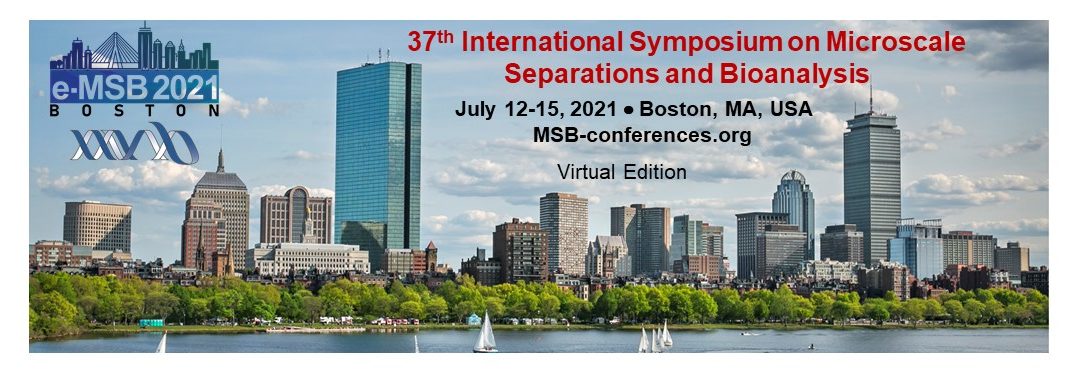 Welcome to MSB 2021, the premier 37th International Symposium on Microscale Separations and Bioanalysis, an exciting forum created to advance science through a unique and immersive conference experience that mimics the collegial atmosphere of in-person MSB meetings. MSB 2021 eBoston will take place on July 12-15, 2021. The conference promotes the sharing of innovative research by scientists from around the world and offers practical and educational information and solutions to challenging and pressing issues.
Welcome to MSB 2021, the premier 37th International Symposium on Microscale Separations and Bioanalysis, an exciting forum created to advance science through a unique and immersive conference experience that mimics the collegial atmosphere of in-person MSB meetings. MSB 2021 eBoston will take place on July 12-15, 2021. The conference promotes the sharing of innovative research by scientists from around the world and offers practical and educational information and solutions to challenging and pressing issues.
Microscale separations enable high-throughput and/or high-performance analyses at reduced costs and with a lower sample and solvents consumption, being therefore highly competitive analytical approaches in today’s research, including fundamental research, drug discovery and development, clinical and forensic toxicology, food analysis, and -omics approaches.
- Learn about fundamental developments to applications that impact health, medicine, food, environment and beyond.
- Hear from world-renowned experts about their latest innovative and sometimes controversial, but mostly unpublished, scientific research.
- Explore ground-breaking technologies.
- View new product launches.
- Discover practical information to improve productivity.
- Discuss challenges and solutions with colleagues.
Get real-world insights from thought leaders and future shapers on today’s most relevant and timely topics.
This year’s program will cover the most interesting developments from the past year, plus advances that we believe will make a splash in the years to come. The impressive scientific program of 120+ oral presentations will cover aspects related to all major microscale separation techniques including capillary electrophoresis (CE), liquid chromatography (LC), omics techniques (proteomics, metabolomics, etc.), microfluidics, mass spectrometry (MS), LC-MS, CE-MS, Lab-on-a-Chip devices, the fundamental aspects of micro- and nanofluidics, microchip fabrication, portable devices, as well as applications related to pharmaceutical sciences, biotechnology, clinical diagnostics, forensic toxicology, food analysis, nanoparticles, industrial chemicals, and more.
4 Full Days of Engaging Scientific Sessions.
Oral presentations are time wise split in 2/3 talk and 1/3 discussion.
Check out the scientific program at https://msb-conferences.org/
Register for attendance here.
MSB 2021 will deliver strong scientific content with opportunities for engagement and building connections. The program is packed with 4 full days of invited and contributed talks, general and parallel sessions with heavy focus on live Q&A by world renowned experts who will share their latest innovative and sometimes controversial, but mostly unpublished, scientific research results, workshops/seminars, exhibition, and a strong poster program where each presenter will upload a pdf of their presentation to their poster virtual board and will have an opportunity to upload a 5-minute pre-recorded video about the work presented in the poster, which will be broadcasted in the session of lightning talks that will be available for on-demand viewing for the duration of the conference. The program will include sponsored video highlights, poster pitch presentations, pre-recorded lightning talks, young scientist and best poster competitions, and awards to recognize outstanding contributions to science and innovative break-through research.
Plenary Lecturers.
- “Electrophoretic Cytometry: Single-cell and Sub-cellular Targeted Proteomics using Microfluidic Design” – AMY E. HERR, University of California, Berkeley, CA, USA
- “Organoids Microphysiological Analysis Platforms (MAP) and Exosome Detection via the Ultrafast-isolation System (EXODUS)” – LUKE P. LEE, Harvard Medical School and Women’s Hospital, Boston, MA, USA
- “Robust and In-depth Work Flows for Single Cell and Clinical Proteomics” – MATTHIAS MANN, Max-Planck-Institute of Biochemistry, Munich, GERMANY and University of Copenhagen, DENMARK
- “Microfluidic Sorting of Extremely Rare Circulating Tumor Cells and Clusters from Blood” – MEHMET TONER, Massachusetts General Hospital & Harvard Medical School, Harvard-MIT Health Sciences & Technology, Boston, MA, USA
- “Toward Universal Druggability” – GREGORY VERDINE, LifeMine Therapeutics, Cambridge, MA, USA
- “Advances in Proteomics” – JOHN YATES, The Scripps Research Institute, La Jolla, CA, USA
Competitions with Awards and Prizes.
- MSB Young Scientist Award
- SCIEX Microscale Separations Innovation Medal Award for current and breakthrough research in the field of Electrodriven Separations
- Thermo Fisher Scientific Early Career Award for breakthrough research advancing the field of Microscale Separations and Bioanalysis
- Best Poster Awards
e-Science Café Workshops.
- Bruker
- SCIEX
- VICI
- Agilent
- Phenomenex
- Thermo Fisher Scientific
Tutorial.
- Capillary Iso-Electric Focusing (CIEF) – Prime Methodology for Protein Characterization – Dr. Gerard Rozing, ROZING.COM Consulting, Karlsruhe, Germany
Comments Off on 37th International Symposium on Microscale Separations and Bioanalysis
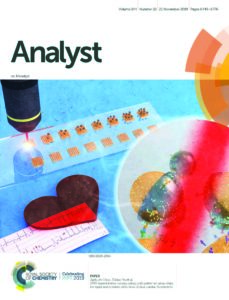 We invite you to contribute an article or review to an ongoing themed collection in Analyst, focusing on Smartphone-based sensors. We welcome papers on this new and exciting area of sensor research in various areas of application including; health monitoring, medical diagnostics, environmental exposure analysis and forensics. The Guest Editors are Professor Sharon Weiss, Vanderbilt University, USA and Professor Jinhong Guo, University of Electronic Science and Technology of China.
We invite you to contribute an article or review to an ongoing themed collection in Analyst, focusing on Smartphone-based sensors. We welcome papers on this new and exciting area of sensor research in various areas of application including; health monitoring, medical diagnostics, environmental exposure analysis and forensics. The Guest Editors are Professor Sharon Weiss, Vanderbilt University, USA and Professor Jinhong Guo, University of Electronic Science and Technology of China.














